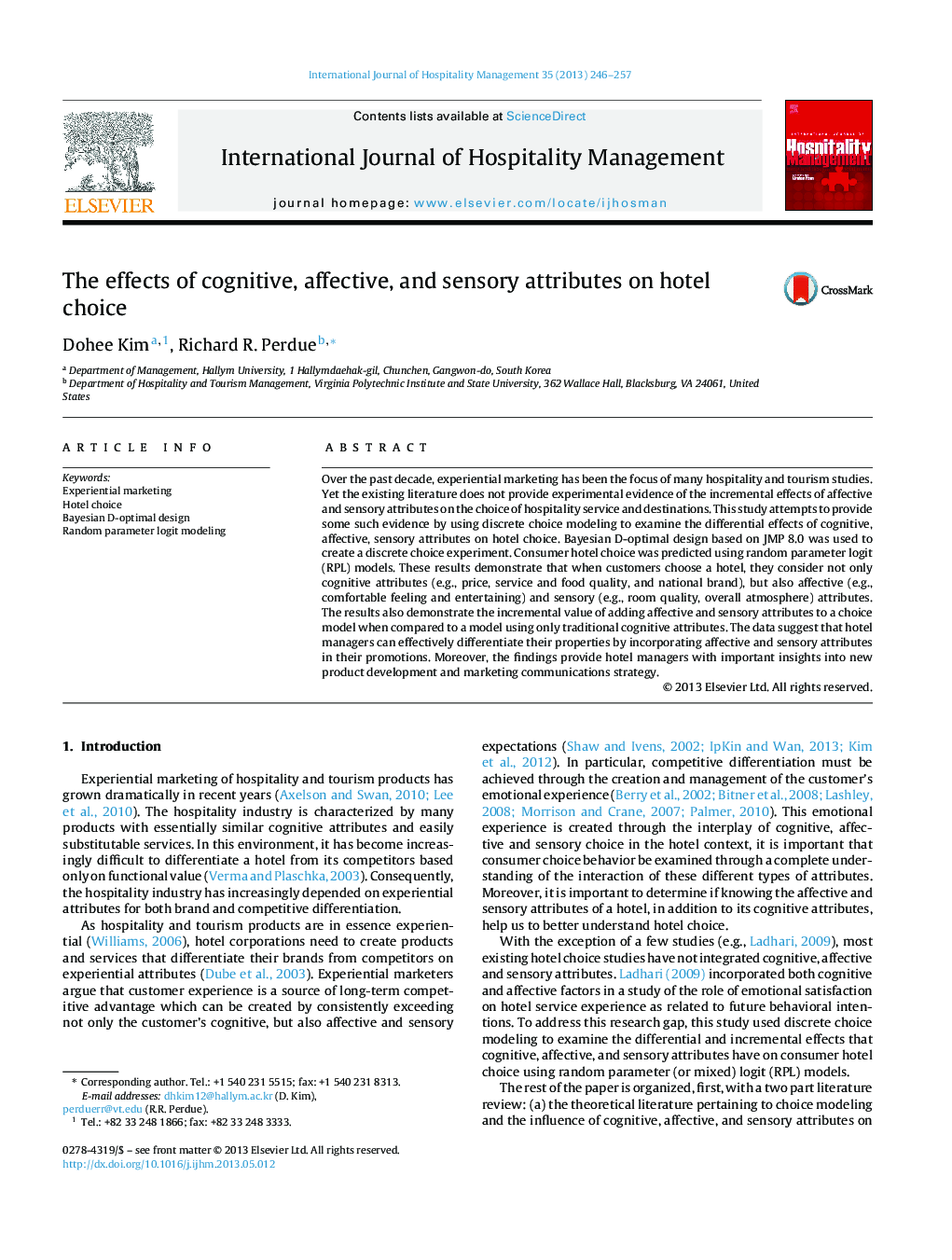| Article ID | Journal | Published Year | Pages | File Type |
|---|---|---|---|---|
| 1009847 | International Journal of Hospitality Management | 2013 | 12 Pages |
Over the past decade, experiential marketing has been the focus of many hospitality and tourism studies. Yet the existing literature does not provide experimental evidence of the incremental effects of affective and sensory attributes on the choice of hospitality service and destinations. This study attempts to provide some such evidence by using discrete choice modeling to examine the differential effects of cognitive, affective, sensory attributes on hotel choice. Bayesian D-optimal design based on JMP 8.0 was used to create a discrete choice experiment. Consumer hotel choice was predicted using random parameter logit (RPL) models. These results demonstrate that when customers choose a hotel, they consider not only cognitive attributes (e.g., price, service and food quality, and national brand), but also affective (e.g., comfortable feeling and entertaining) and sensory (e.g., room quality, overall atmosphere) attributes. The results also demonstrate the incremental value of adding affective and sensory attributes to a choice model when compared to a model using only traditional cognitive attributes. The data suggest that hotel managers can effectively differentiate their properties by incorporating affective and sensory attributes in their promotions. Moreover, the findings provide hotel managers with important insights into new product development and marketing communications strategy.
